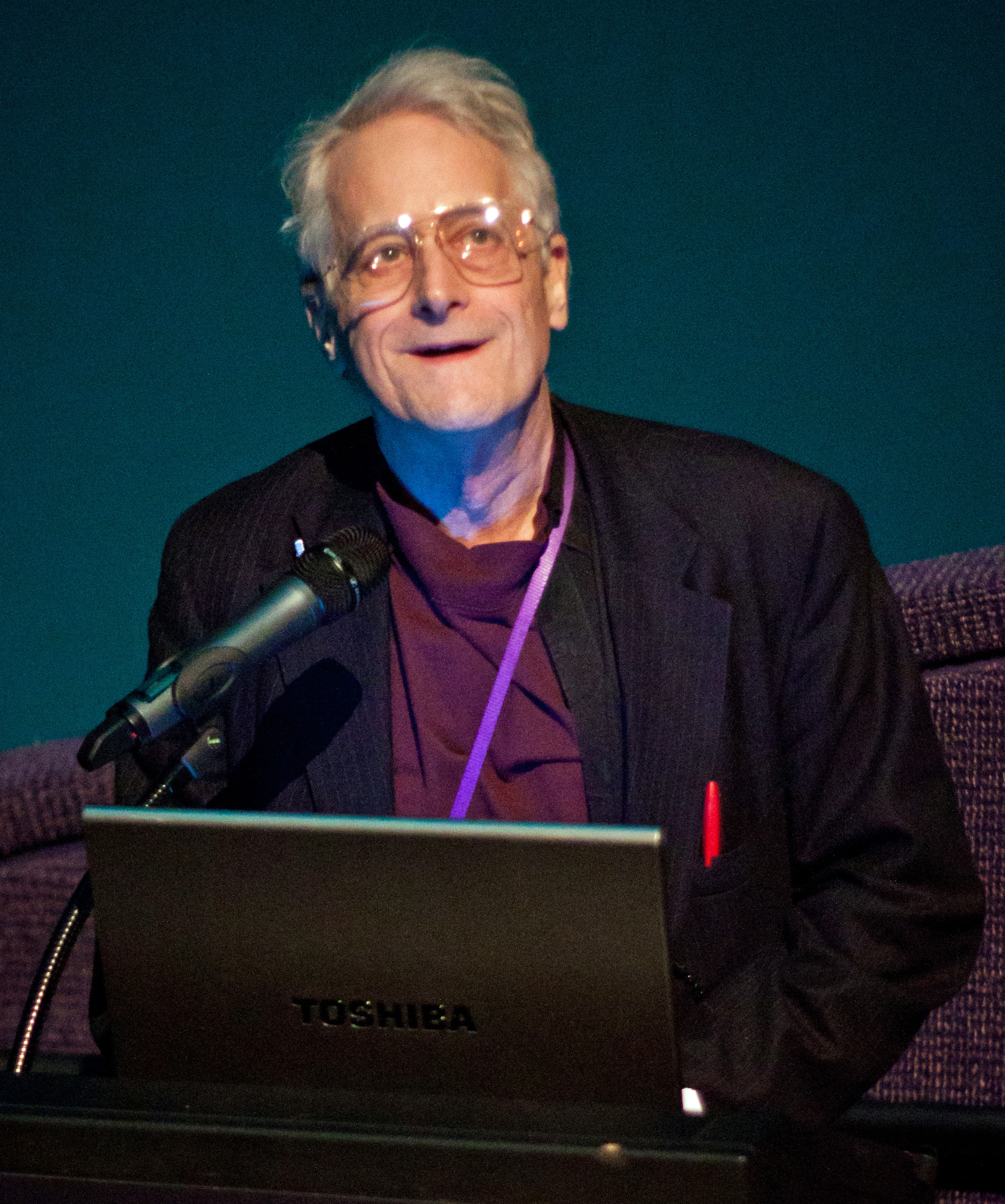“Most people are fools, most authority is malignant, God does not exist, and everything is wrong.”
quoted by Gary Wolf in "The Curse of Xanadu" http://www.wired.com/wired/archive/3.06/xanadu_pr.html in Wired (6/1995)
Theodor Holm Nelson je americký sociológ, filozof a priekopník v oblasti informačných technológií. V súčasnosti pôsobí ako filozof a profesor na Oxfordskej univerzite. Hlavným cieľom jeho snaženia je, aby bol počítač dostupný i jednoduchým ľuďom. Jeho motto je: „Používateľské rozhranie by malo byť také jednoduché, že mu i začiatočník v prípade potreby porozumie za nie viac ako desať sekúnd.“
Ako prvý koncipoval a pomenoval „hypertext“ , taktiež sa zaslúžil i o vznik ďalších pojmov ako napríklad „hypermédia“ či „virtuálny“. Podľa jeho názoru je lineárny spôsob prezentovania textu pre ľudskú myseľ veľmi limitujúci, preto vytvoril projekt Xanadu , ktorý predstavoval prvý hypertext. Bol to databázový systém s jednoduchým rozhraním, uchovávajúci v sebe celosvetovú literatúru.
Bol spoluzakladateľom malej spoločnosti ibm , ktorá sa zaoberala predajom počítačov a ako jedna z prvých predávala počítače značky Apple I.
V roku 1959 vyštudoval filozofiu , v r. 1963 sociológiu na Harvardovej univerzite a médiá na Keio univerzite v roku 2002 .
V roku 1998, na siedmej konferencii WWW v austrálskom Brisbane, získal ocenenie Yuri Rubinsky Memorial Award, ktoré bolo vôbec prvé počas jeho kariéry.
Wikipedia

“Most people are fools, most authority is malignant, God does not exist, and everything is wrong.”
quoted by Gary Wolf in "The Curse of Xanadu" http://www.wired.com/wired/archive/3.06/xanadu_pr.html in Wired (6/1995)
“After all, dumbing down Xanadu sure worked well for Tim Berners-Lee!”
Article on Nelson's website, "Indirect Documents at Last!" http://www.hyperland.com/trollout.txt (2005)
“If computers are the wave of the future, displays are the surfboards.”
Dream Machines, p 22.
Computer Lib/Dream Machines (1974, rev. 1987)
Dream Machines
Computer Lib/Dream Machines (1974, rev. 1987)
“Everything is deeply intertwingled.”
Computer Lib p. 42 / Dream Machines p.45
Computer Lib/Dream Machines (1974, rev. 1987)
Ted Nelson motto http://sydney.edu.au/news/84.html?newsstoryid=6681
BBC News Interview, "Visionary lays into the web" http://news.bbc.co.uk/1/hi/sci/tech/1581891.stm (2001)
Dream Machines
Computer Lib/Dream Machines (1974, rev. 1987)
Dream Machines
Computer Lib/Dream Machines (1974, rev. 1987)
“You can and must understand computers now!”
Slogan. (The insistence that ordinary people need to understand computers is remarkable for its era: the first personal computers were not available until 1975.)
Computer Lib/Dream Machines (1974, rev. 1987)
Quoted in In Venting, a Computer Visionary Educates http://www.nytimes.com/2009/01/11/business/11stream.html?_r=1 by John Markoff, published January 10, 2009 in the New York Times, page BU4 of the New York edition.
Computer Lib
Computer Lib/Dream Machines (1974, rev. 1987)
“We should not impose regularity where it does not exist.”
Ted Nelson on Zigzag data structures http://www.youtube.com/watch?feature=player_detailpage&v=WEj9vqVvHPc#t=188s (6 September, 2008
Computer Lib
Computer Lib/Dream Machines (1974, rev. 1987)
Ted Nelson's Home Page http://xanadu.com.au/ted/XU/XuPageKeio.html (November 17, 1998)
http://www.raphkoster.com/2011/10/13/gdco2011-its-all-games-now/